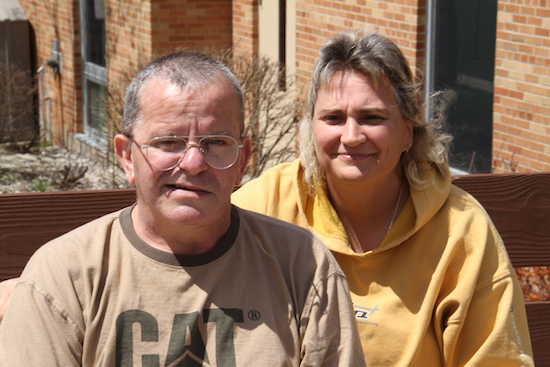Coma Emergence: Part Six
Just as the realization that “this is not good” is gripping Mike’s wife, the seemingly endless hours of waiting for coma emergence begin. See http://waiting.com She tells the story of the next week and the coma emergence:
Waiting for Coma Emergence
Well, they did the surgery and he was in a coma for eight days after that. I knew the whole while – I was there that I stayed there for like six days and I wouldn’t leave the hospital. I didn’t eat for three or four days. I just couldn’t eat.
They finally told me that I actually had to leave his bedside or they weren’t going to leave me in there anymore. I needed to go eat something and take care of myself because he would need me to take care of him.
And he would squeeze my hand when we talked to him. Even though he was in a coma, he would squeeze my hand and I knew he was going to be okay.
Praying for Coma Emergence
So despite the fact that the doctor was telling you he had little chance, he actually seemed to do fairly well after the surgeries?
I actually was to that doctor’s office the day before (Mike’s accident) with my injuries and talked to his assistant that he works with. And she was there that night (that night of the surgery) and I actually seen her once and she was walking away with an apple, and this was about 7:00 at night.
When I saw the doctor who did Mike’s surgery, I kind of freaked out because, you know, the day before I was there, you know, telling him I had my neck fused, my back fused, whatever, and I went back to work for five hours a day and I just couldn’t do what I was doing anymore and telling him, you know, I can’t do this and, you know, now I’m like begging him the next day to, you know, save my husband’s life.
So anyhow, I had seen his assistant, and when I ran into her while my husband was in the hospital, she said that she had seen me there but she said I could never, I couldn’t meet up with you she said because you know what I knew you personally and this was the first time that I really ever knew anybody that we had to do, you know, brain surgery on and that I knew it was your husband.
She said: “I felt so bad because you know what I got home at 2:00 in the morning she said and when I went to bed I said you know what her husband is going to die, he’s not going to make the night it was so massive. ‘
And that is weird that the doctor used “just massive”. And shaking his head “no” to just, you know, leave him go. I have in the reports where he talked about the “grave situation” and everything, I have it right in the reports, and there was just no way he was talking me into just leaving him be.
Coma Emergence
So he had a second surgery. He woke up after about eight days. He was in ICU for about two weeks.
Mike’s wife never gave up hope that there would be coma emergence even after the grim picture that medical staff painted.
Next in Part Seven – Ignoring the Negativity of the Medical Prognosis



When medical professionals — especially doctors — are posed questions about the prognosis of patients, they feel like they should give families the bleakest outlook for the survivors. In the event that the patient’s health does take a turn for the worst, the family is a bit more prepared than if the doc had said that their loved-one was going to be fine.
If, in the event that the patient gets better, wakes or starts showing signs of recovery, the doctor is suddenly viewed as a miracle worker. It probably cuts down on the number of times doctors get sued because “They said he would be alright.”
The best thing you can do to prepare for such a catastrophe is to educate yourself. Please visit http://braininjurytn.org for more info.
The morning I went to the hospital my parents came up. The neurosurgeon told my family about what they were going to do and “no guarantees were given” to them. As she said, there is no plan that can cover that when it happens except to be there……